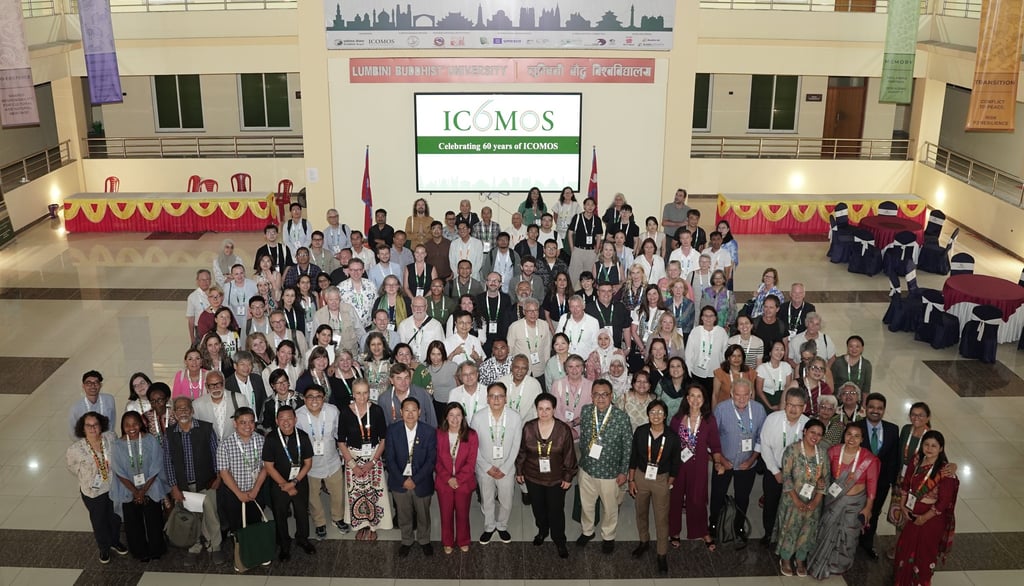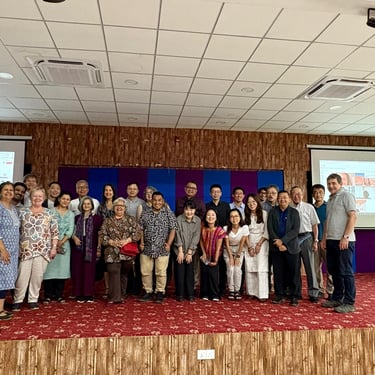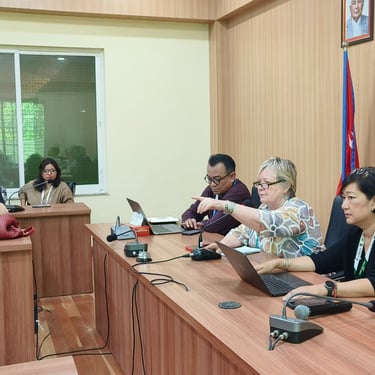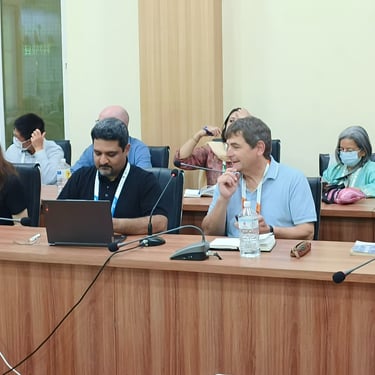ICOMOS Pakistan proudly participated in the ICOMOS AGA 2025 in Lumbini, Nepal
ICOMOS Pakistan actively participated in the ICOMOS AGA 2025 in Lumbini, Nepal, contributing to the theme “Perceptions of Heritage and Resilience – Disaster Risk Reduction and Preparedness.” Presenting both in person and online, the delegation addressed critical issues ranging from legal gaps in heritage protection and climate vulnerability to conflict risks and regenerative tourism. With sessions spanning Heritage Impact Assessment, Disasters and Climate, Conflict and Heritage Protection, and Tourism Resilience, Pakistan’s contributions highlighted urgent regional challenges while emphasizing preparedness and reform. The delegation now looks ahead to strengthening its role in GA 2026 in Kuching, Malaysia.
10/27/20252 min read


At the ICOMOS Annual General Assembly (AGA) 2025, held in Lumbini, Nepal, the active participation of the ICOMOS Pakistan contingent made a meaningful contribution to the Scientific Symposium themed “Perceptions of Heritage and Resilience – Disaster Risk Reduction and Preparedness,” aligned with the ICOMOS Triennial Scientific Plan 2024–2027, “Conflict and Disaster Resilient Heritage,” with this year’s emphasis on “preparedness to risk.” Through both in-person and online engagements, members of ICOMOS Pakistan brought forward perspectives grounded in conflict-affected heritage, legal gaps in development governance, disaster vulnerability, and regenerative tourism models.
Presenting in person in Session 2-7-B: Focus+ – Heritage Impact Assessment in the Asia Pacific Perspective, Usman Sami delivered his talk, “Challenges for Heritage Impact Assessment in Pakistan & Recommendations,” using real cases where large-scale development projects advanced within protected heritage buffers due to the absence of a mandatory HIA process. He highlighted how reliance on EIAs alone allows heritage oversight to be bypassed, particularly after the dissolution of key review committees. He concluded with a strong call for legislative reform to institutionalize HIA as an enforceable requirement within Pakistan’s development and heritage governance systems.
Also presenting in person, Fauzia Husain Qureshi addressed the rising vulnerability of high-altitude cultural landscapes in her session under Session 2-9-B: Focus (Disaster) – Disasters and Climate, titled “Gilgit-Baltistan at a Crossroads: Are We Ready for the Consequences of Unchecked Tourism and Climate Change?” Her presentation emphasized the urgent need for resilience strategies that address tourism pressure, climate stress, and community preparedness in sensitive heritage regions.
Participating online, Kashif Essa contributed to Session 2-6-B: Conflict – Tools for Protection of Cultural Heritage in Conflict Areas with his presentation, “Preserving the Buddhist Rock Reliefs of Swat: Cultural Heritage at Risk.” He discussed the vulnerability of archaeological sites in politically sensitive environments and stressed the importance of risk-based assessment, documentation, and response mechanisms for conflict-prone heritage.
Also presenting online, Zahida Quadri participated in the ICTC (International Cultural Tourism Committee) & ICIP (International Scientific Committee on Interpretation and Presentation of Cultural Heritage Sites) Cluster Event titled “Regenerative Destination: Carrying Capacity and Heritage Interpretation as Tools for Transforming Tourism into a Vehicle for Resilience and Peace,” where she presented her case study, “Destination Management & Responsible Tourism in Swat Valley, Pakistan: Carrying Capacity Framework & Heritage Interpretation as Tools for Transforming Tourism into a Vehicle for Regeneration, Resilience & Peace.” Her talk positioned tourism as a potential peacebuilding and resilience tool when grounded in community engagement and carrying capacity-based planning.
Together, these contributions reflected ICOMOS Pakistan’s growing role in advancing heritage discourse across themes of conflict preparedness, climate risk resilience, legal and governance reform, tourism impacts, and heritage-based peacebuilding. The participation of both in-person and online presenters demonstrated Pakistan’s commitment to aligning national heritage priorities with global resilience frameworks.
As ICOMOS Pakistan prepares for continued regional engagement ahead of the GA 2026 in Kuching, Malaysia, these interventions lay the groundwork for further involvement in scientific committee development, risk-based heritage governance, and Asia-Pacific–driven dialogues on preparedness and resilience.




